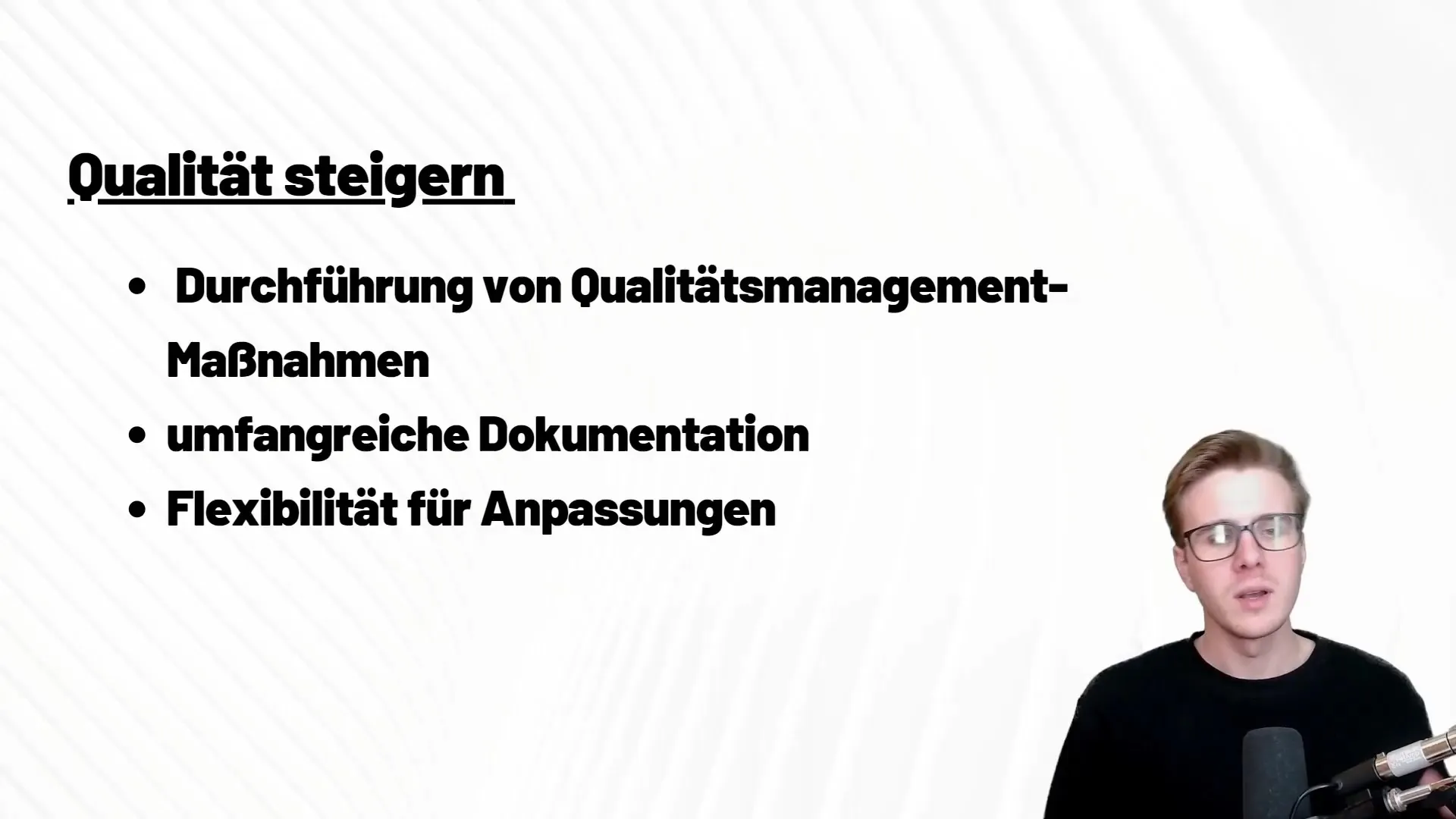Lean project management offers companies the opportunity to efficiently utilize resources and focus on customer benefits. By implementing simple yet effective strategies, not only can project progress be optimized, but also customer satisfaction can be increased. In this guide, you will learn about eight strategies you can implement to successfully manage your projects.
Key Insights
- Customer orientation is paramount.
- Avoid unnecessary ballast.
- Increase quality and integrity.
- Flexibility in planning is crucial.
- Promote learning and improvement.
- Strengthen employees' self-responsibility.
- Define clear goals and commitments.
- Fast delivery and feedback are essential.
Step-by-Step Guide
Create Value
The primary goal in Lean project management is creating value, with a clear focus on customer benefits. Consider what your customers truly need. Instead of solely focusing on internal goals or revenue increases, ask yourself how you can provide maximum benefit to your customers. Understanding what your customers want gives you a direct advantage over the competition.

Avoid Ballast
To work efficiently, it is important to eliminate unnecessary ballast. Consider which functions or features are irrelevant to the customer. If customers are not willing to pay for certain characteristics, you may need to remove them. For example: If the color of a product is irrelevant to your customers, focus on improving other value aspects.
Increase Quality and Integrity
To ensure high quality, you must take appropriate measures in quality management. Thorough documentation of work processes is essential not only to record successes but also to analyze failures. A Kanban board can help you keep track. Flexibility in planning enables quick responses to changes without losing sight of project goals.
Flexibility in Planning
A rigid project schedule can be counterproductive. Include enough buffer to address unexpected challenges. Overplanning risks your project falling behind schedule, jeopardizing overall efficiency. Ensure your team has enough time to meet requirements and make necessary adjustments.

Promote Learning
Learning and continuous improvement are crucial for long-term success. Conduct regular project meetings to exchange experiences and insights. Analyze both successes and failures and discuss areas for improvement. This ensures your team learns from past projects and integrates those experiences into future endeavors.

Strengthen Self-Responsibility
Empower your team members with more responsibility to increase their motivation and project identification. A project manager should act more as a coordinator who promotes self-responsibility rather than trying to control everything. This instills a sense of responsibility in employees and enhances their identification with their tasks.
Set Clear Goals
Before starting a project, all goals and expectations must be clearly defined. Engage with your team in dialogue and have the goals validated. Involving the team in the decision-making process enhances engagement and helps avoid misunderstandings.
Integrate Fast Delivery and Feedback
Efficiency is also increased by quickly delivering results. Ensure your team has clear guidelines and can work independently. Incorporate feedback from customers as quickly as possible to adjust next steps and continuously improve the product. Swift feedback helps make the project smoother and more effective.
Optimize Holistically
Lastly, it is important to involve all stakeholders in the improvement process. Everyone should be aware of Lean Management principles and continually analyze and optimize the entire process. This is the key to ensuring lasting success in project management.
Summary
Lean project management provides you with the tools to effectively control projects while maximizing customer value. The eight strategies we discussed help you focus on efficiency, quality, and continuous learning in every project.
Frequently Asked Questions
How important is customer focus in Lean project management?Customer focus is crucial as the needs of customers should be the starting point for all projects.
What does "avoiding ballast" mean?Avoiding ballast means rejecting unnecessary functions or features that do not provide added value for the customer.
How do you promote team learning?Through regular reviews and meetings to exchange successes and improvement potentials.
Why is flexibility important?Flexibility helps to quickly solve unforeseen problems without jeopardizing the overall schedule.
How do you strengthen the employees' sense of responsibility?By delegating responsibility and encouraging employees to make decisions independently.


